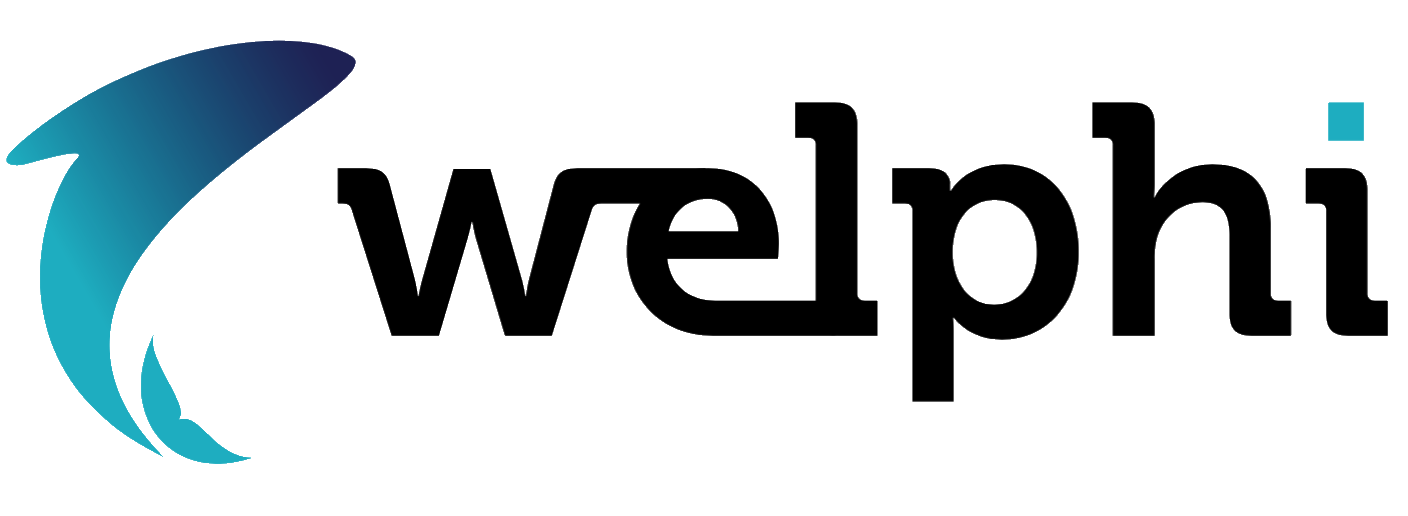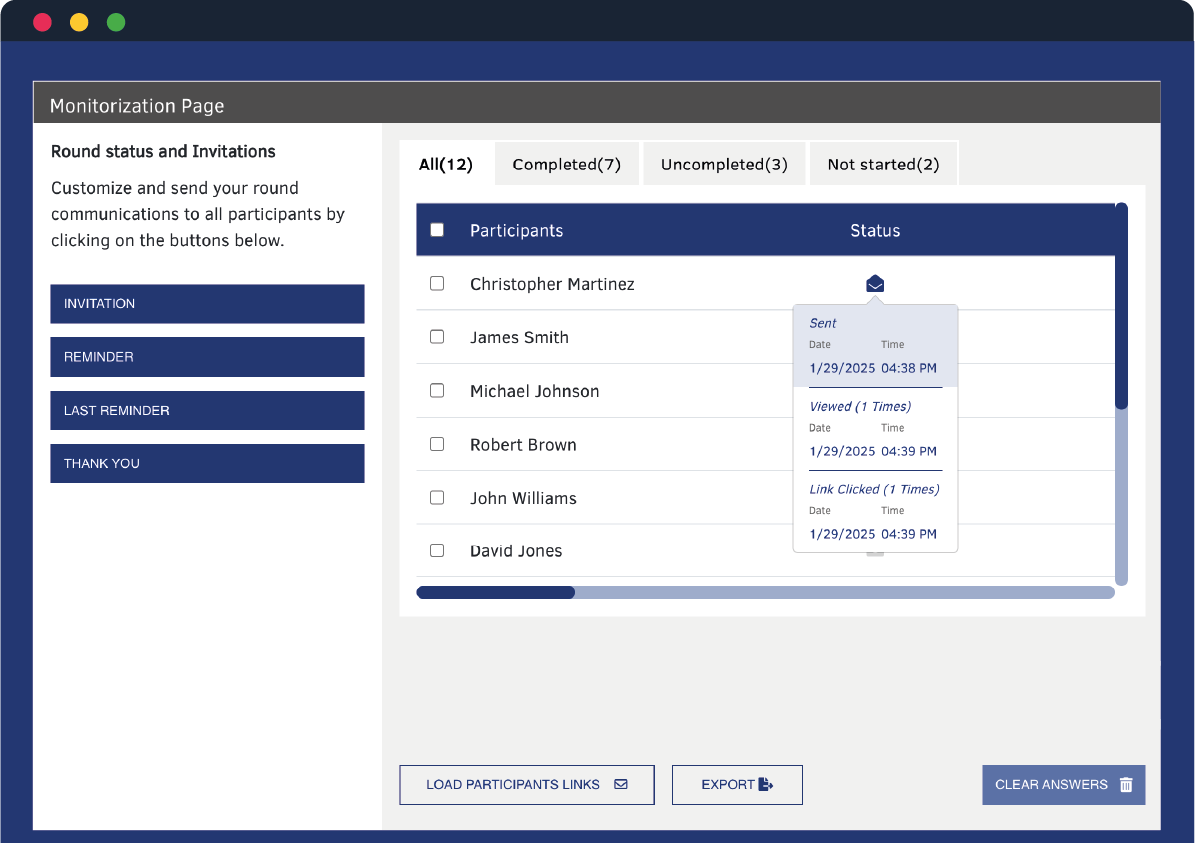
Delphi Method Survey Software
Build Consensus on Complex Topics
Setup a Delphi panel online in just a few minutes
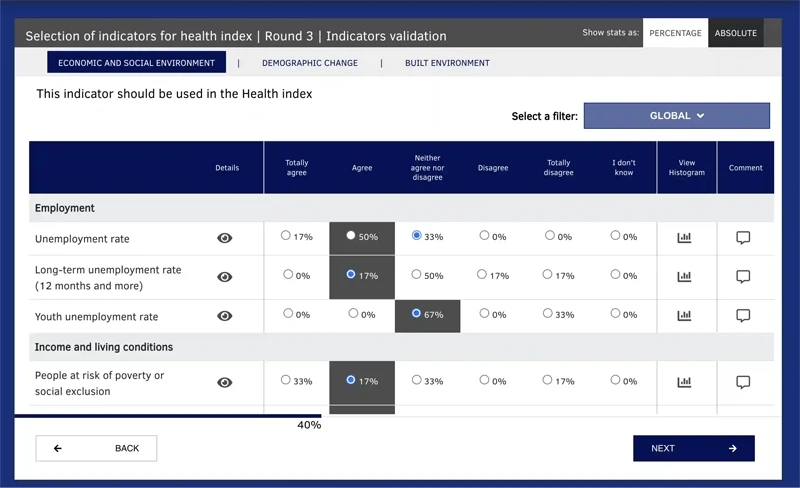
Anonymity
Controlled Feedback
Asynchronous Participation
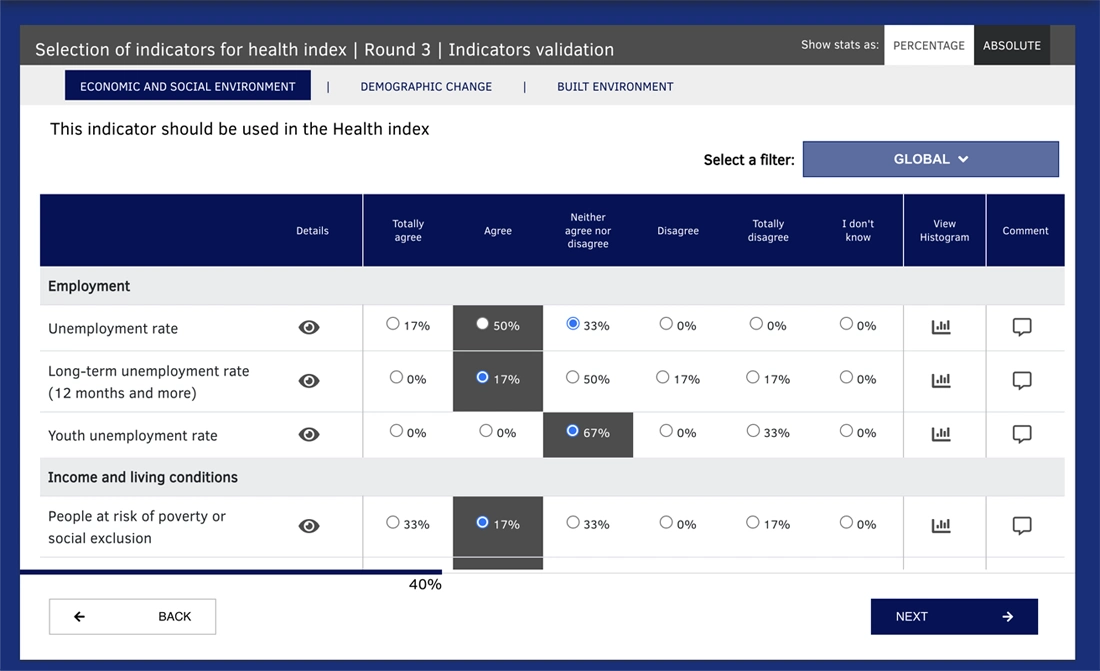
Improving decision-making solutions around the world
Delphi Method
Delphi was developed at the RAND Corporation in the 1950s to forecast the impact of technology on warfare. Since its development, and given its underlying flexibility, the Delphi method has undergone different modifications and today there are several types of Delphi methods.
This ability to adapt to different real world problems makes it possible to find examples of Delphi processes on [3]: risk management, investment analysis, planning health services, policy and trend analysis and policy formulation.
Welphi empowers you to effortlessly create, manage, and analyze your Delphi processes. Include page types such as informed consent, demographics, and several Delphi types with automatic statistics.
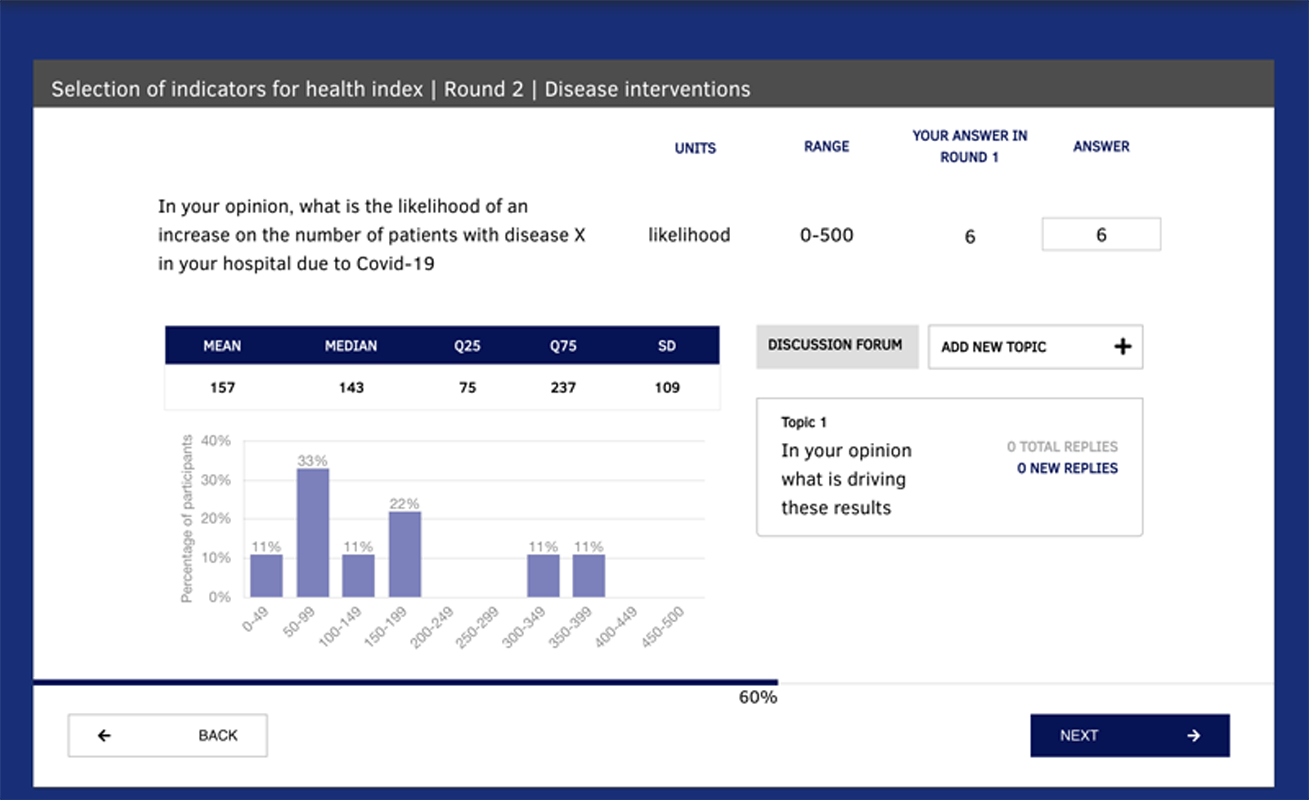
Setup process
Create your process pages and questions, select your participants, and study settings
Monitor and communicate
Monitor you participants progress and send reminder e-mails easilty within the platform
Launch follow-up rounds
Automatically create follow-up rounds with statistics and comments and share with participants.
4 Advantages you need to know
Delphi Method optimize the quality of the consesus and improves participation to make structural decisions on complex topics.
Anonymous
Ensure anonymity to reduce peer pressure
Controlled
Control the feedback provided to participants
Asynchronous
Allow participants to answer at their own rhythm to reduce drop-off
Attractive
A clean user interface helps participants go effortlessly through the questionnaire
How we do it
Welphi makes creating Delphi panels online simple and effective. Its intuitive, guided process ensures methodological rigor, allowing users to build expert panels that adhere to best practices with minimal setup time. By balancing ease of use with robust methodology, Welphi streamlines consensus-building for impactful decision-making.
How We Do It
Welphi makes creating Delphi panels online simple and effective. Its intuitive, guided process ensures methodological rigor, allowing users to build expert panels that adhere to best practices with minimal setup time. By balancing ease of use with robust methodology, Welphi streamlines consensus-building for impactful decision-making.
Create your Delphi panel, setup the access mode and add your participants
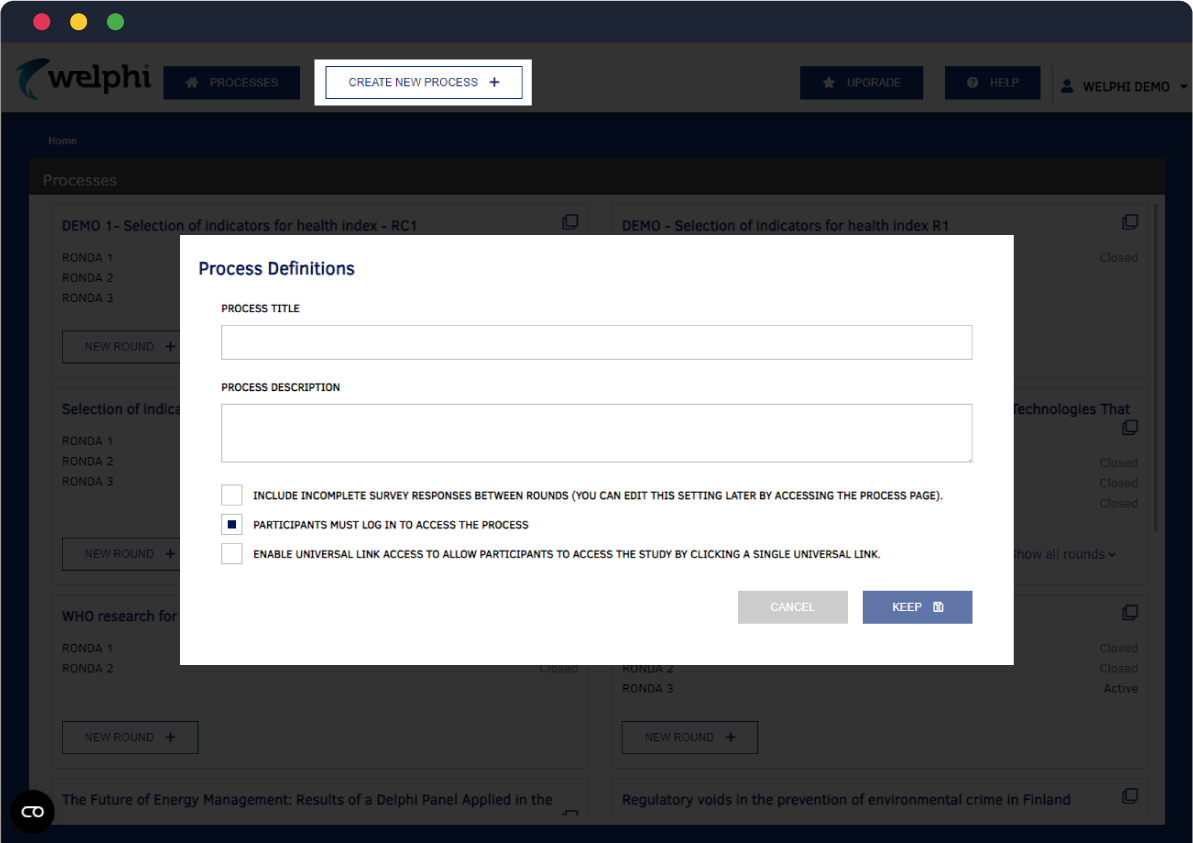
Add a round and it’s pages. Then, add the questions to each page and that’s it.
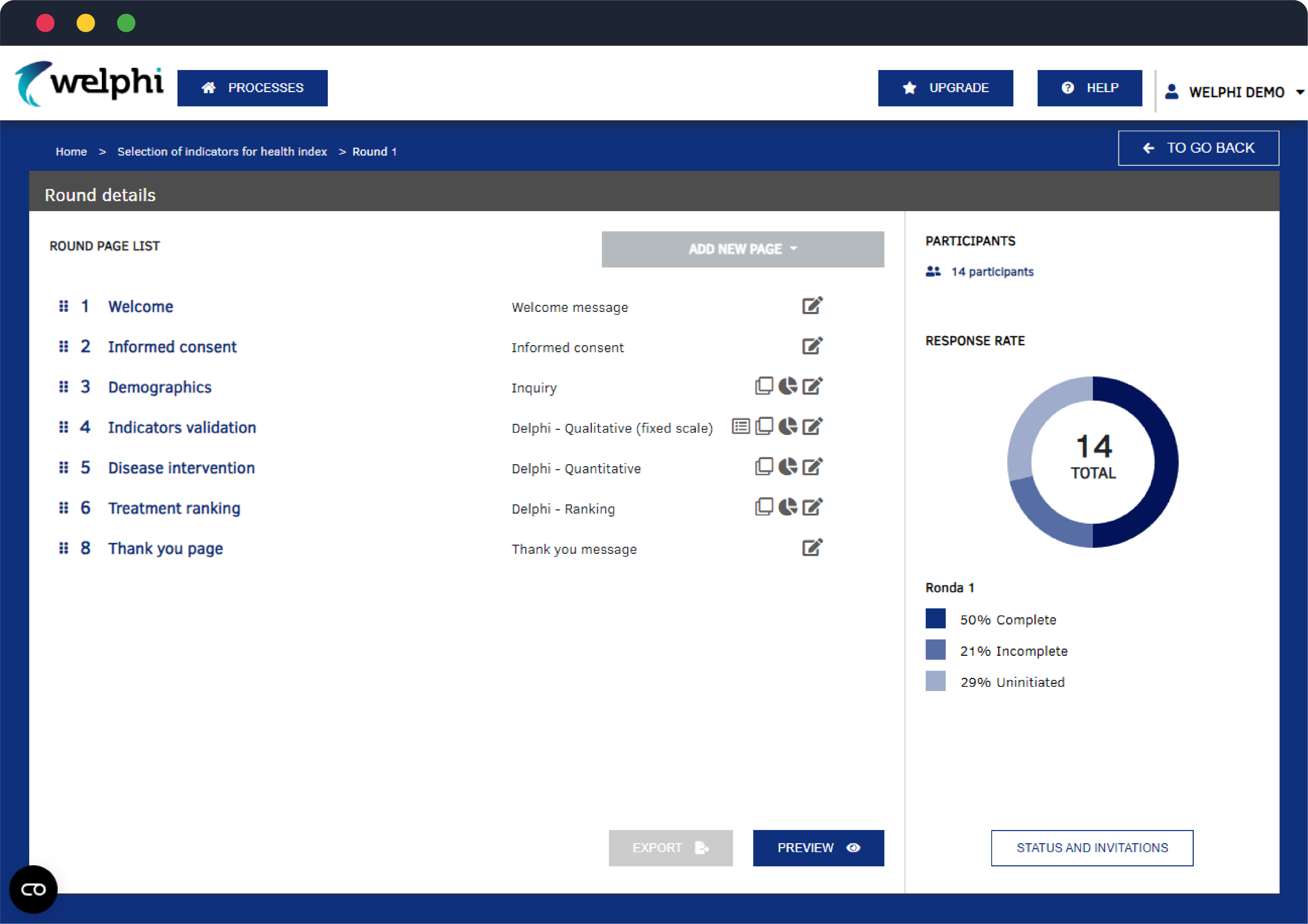
To allow access to your study, just click send invite and monitor the send status
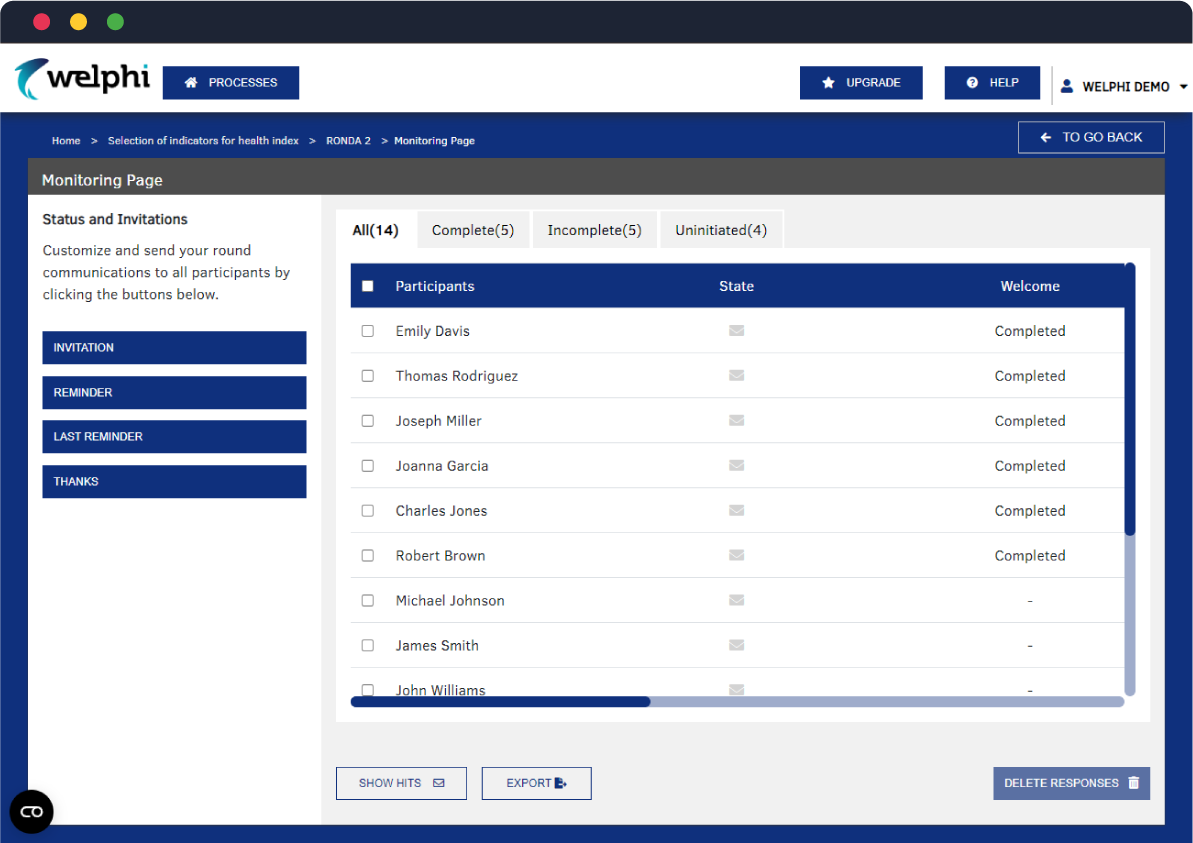
Check the stats automaticaly generated by Welphi and set consensus rules
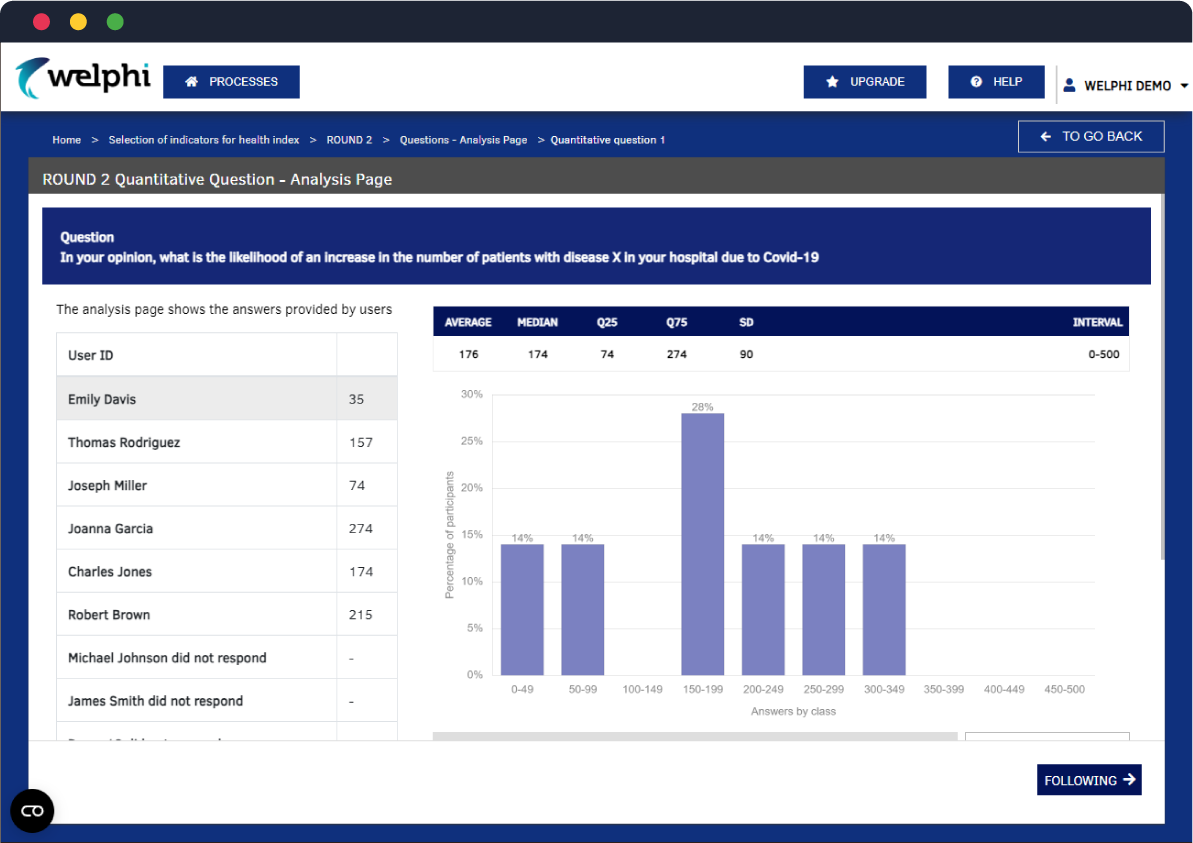
Share the anonimous results (stats and comments) with the participants and collect new answers
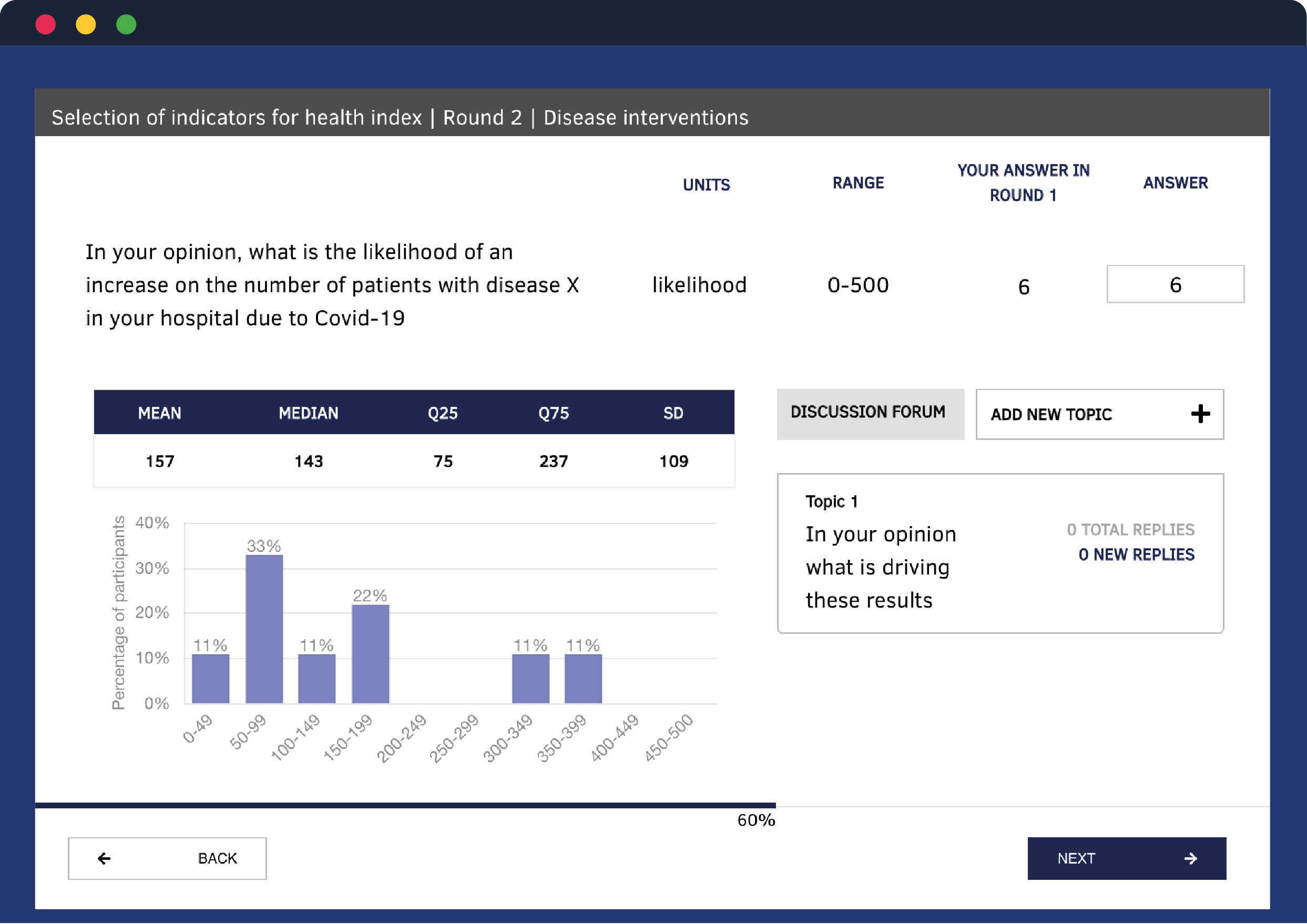
Testimonials
Trusted by global organizations.
Sign Up and start a new process in a few minutes with our user friendly cloud web app.
32k
Participants
Rated 5 out of 5
85
Dayli Users
Rated 5 out of 5
“We chose Welphi to perform a global Delphi survey toachieve consensus on the indicators and targets (more than a hundred). The support from designing the survey to the final analysis were simply great. The platform itself is very user-friendly, i would certainly recommend they will make the job so much easier for you!”

Dr. Giovanni Satta
WHO, Infection Prevention and Control Unit
“I used Welphi platform to carry out four Delphi studies at the same time - something that would have been impossible without Welphi. Streamlining interactions with participants and monitoring their progress. There was also good support from João and his colleagues”.

Dr. Jo Smith
MV Agroecology Research Centre, Portugal
“I’ve had a good experience working with Welphi! The software is super helpful for
surveys and for survey analysis, especially when you are running many at a time! We
have really appreciated the fast response of the Welphi team for any and all questions
about set-up and troubleshooting. “

Julie Landsman
European Association of Urology
“The software pseudonymises the participants and controls the pace of answer delivery,
which is a great time-saver. The centralisation of emails within the application is also very handy and reduces the toil of communication with the Delphi participants.“

António Atalaia
APHP G.H. Pitie-Salpetriere, Paris
These Companies Trust In Our Software To Get Consensus
No more complex analysis and face-to-face meetings.
Start your 14 day trial and start making better decisions.
Frequently Asked Questions.
Welphi operates in rounds, similar to the standard Delphi method. However, unlike the traditional Delphi, where feedback from one round is shared with participants before the next round starts, Welphi shares the feedback from one round with the participants during the next round. This allows participants to consider changing their opinions while viewing the automatic statistics generated by Welphi and the anonymous comments provided by other participants. By definition, since it is an online platform, you can call your process an e-Delphi.
Given the difference in how statistics are shared (among other changes), this is also a modified Delphi. After each round, you just need to click the “Add new round button,” and Welphi will automatically create a new round as a copy of the previous one, including aggregated statistics from the participant’s answers. You can implement consensus rules to filter questions already approved from showing up in the next round.
The Delphi Method is a structured method of forecasting and communication employed to establish and establish the consensus of an expert group on an intricate topic or problem. It is basically rounds of anonymous surveys that are sent to a panel of experts. Following each round, facilitators review the results and give aggregated feedback to participants, encouraging them to rethink their positions with regard to the perspectives of the group. This process of anonymity and iteration eliminates biases of the group and social pressure, encouraging impartiality and helping to come to a more informed group opinion which is ideal for making decisions in uncertain situations.
Through Welphi, the Welphi platform, the process of obtaining results using the Delphi method can be improved through process automation. After completing each round Welphi automates the process of aggregating and combining responses, creating reports and statistics of comments that are anonymous. The results are utilized to plan future rounds and are given to experts as feedback. This helps experts adapt their perspectives and come to a consensus quickly and with a well-organized method.
Welphi works by rounds. Only when one round ends can you launch a new one where your participants can see the statistics based on the previous round’s answers.
However, since Welphi creates all new rounds automatically as a copy of the previous one, creating a similar setup as an RTD is straightforward. You just need to keep creating new rounds so that when your participants return to the questionnaire, they see updated statistics.
Welphi fosters consensus in Delphi studies by ensuring expert anonymity, which removes social pressures and promotes honest opinions. It then automates the iterative feedback loop, presenting aggregated statistical summaries and anonymized qualitative comments from previous rounds directly to participants. This clear, structured feedback enables experts to reflect on their positions and adjust their views in light of the group's evolving stance, efficiently guiding the entire panel towards a shared understanding and ultimate consensus.
Every time you want to get the answers from the participants you want to invite, you need to set up a round. A round begins when you invite participants, and ends when you decide you have enough answers. Once the first round is finished, you can use Welphi’s tools to analyse the data. After this, you can set up another round so that participants are allowed to see the statistics of the other users’s answers as well as the comments they may have written. The goal is that, through several rounds, the group can get closer to a consensus.
A Delphi study is often composed of multiple rounds as its core principle involves gathering expert opinions through iterative feedback cycles. While no universal number of rounds applies for every study conducted using Delphi methodology, each may vary based on research objectives and when an agreed upon consensus level has been met.
Delphi studies typically involve at least two rounds to allow for iterative feedback and modification of opinions, though published examples often take on three to four. Though longer rounds could potentially increase panelist engagement and responses stability. Once consensus or stability have been attained or observed by panelists, then further iterations occur until an acceptable solution emerges from these iterations. The process continues until either consensus has been attained or enough responses remain stable enough.
No. To help the questionnaire be cleaner to the participants, you can add category field to the elements to aggregate them in groups. Imagine you are asking validation about criteria to build an index, you can add a field named “Area” and define to each area does each criterion belong. This way, the questionnaire will be splitted in a screen for each area thus making it much easier for participants to answer.
Yes, anonymity of participant responses is central to the Delphi method and Welphi is specially tailored to ensure it. This platform ensures that responses and opinions provided by experts remain private; no participant knows any participant's specific answers. Anonymity is crucial as it reduces social pressure, negates dominant personalities' influences, and encourages experts to express honest, impartial opinions for a more objective distillation of collective wisdom. While study administrators typically see who has responded for tracking purposes, individual responses will typically remain anonymous before being aggregated back with panelists for review and sharing back.
Healthcare and medicine, science and technology forecasting, education, business and management. Other significant areas include environmental studies (for risk assessment, climate change impact prediction, and sustainability strategies), public policy (for developing comprehensive policy frameworks on complex issues like economic inequality or social reform), and urban and regional planning. Furthermore, it finds use in project management for scope and risk management, identifying potential hazards, and gaining stakeholder consensus on project requirements.
There are no limit. Also, you can change add and remove participants at any time.
Latest Posts
Here you can find the most innovative, accurate and interesting information throught news and blog posts.

The experts reached a consensus regarding the use of factor VIII (FVIII) replacement therapy…

Using the Welphi software to help creating a tool to assess products sustainability
The excessive exploitation of natural resources led the industry to seek for new strategies…

Consensus decision-making for governments in times of health crisis
I think that you should be able to select more than one reason for…
Want to receive Welphi updates?
No worries, we don’t spam your inbox.
Delphi Method
Delphi Method is a structured communication approach used to reach consensus within an expert group. First developed in the 1950s, relies on anonymous surveys and feedback loops to gather informed judgments from its participants. Experts respond to questionnaires administered by facilitators, who then provide summaries of results at the conclusion of each round; participants modify their answers based on group feedback to achieve convergence over time. One of the key advantages of the Delphi Method is reducing bias that often exists during group discussions. Since responses are anonymous, dominant individuals cannot exert influence over other participants resulting in more balanced and considered input from all corners.
Furthermore, this process enables experts from various locations and fields to work effectively together. Nowadays, processes are typically supported by software survey consensus designed to make creation, data collection, and analysis simpler. Facilitators can easily manage multiple rounds, monitor response trends, maintain participant anonymity and monitor participant engagement asynchronously using online Delphi software platforms. Automating feedback summaries and questionnaire updates further strengthens both quality and speed in this process.
The Method has long been utilized as an indispensable method for forecasting, policy making and research planning when direct empirical evidence is scarce. Its iterative nature enables organizations to hone ideas, clarify assumptions and reach an agreed-upon solution quickly and easily. With its systematic yet inclusive approach to complex problems that need expert insight. Through the Delphi Method, organizations can make more informed decisions while drawing from various perspectives in an objective but collaborative fashion.
